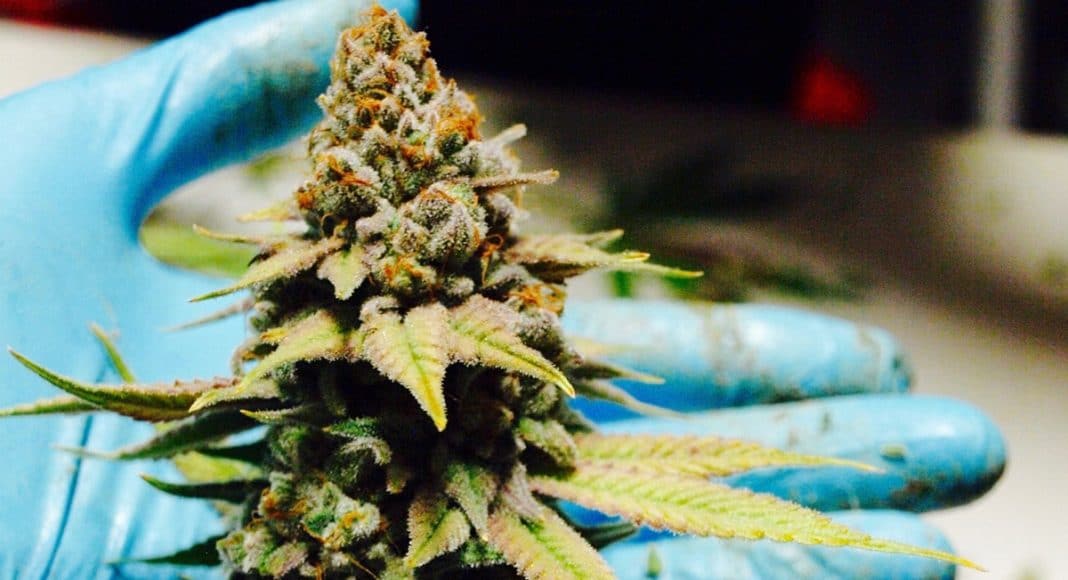Among the Cannabis Woman’s Alliance’s recent educational offerings included a panel of leading voices in the cannabis industry to discuss the science of terpenes. While this session was geared toward educating budtenders, the insights presented by these panelists can benefit any consumer looking to enhance their experience with cannabis.
According to panelist A.C. Braddock, CEO of Eden Labs, “Until a couple years ago and against our urging to focus on whole plant, the extraction community mimicked alcohol prohibition by being focused on making the strongest product possible. This quest for high levels of THC destroyed terpene content by over refining for THC and ignored the Entourage Effect and the largest sector of market growth; pure, whole plant, dosable products for people over 50 and women. THC alone or in high concentration is boring and drastically limits the efficacy and marketability of products for health and enjoyment by all.”
What Are Terpenes?
Trail Blazin‘, a pesticide-free cannabis farm dedicated to educating consumers about their products, provides educational materials explaining the basics of terpenes. Their educational pamphlet defines terpenes as “organic hydrocarbons found in nature, including the aromatic oils in cannabis that greatly influence the ‘high’ you experience.”
For centuries terpenes have been used for medicinal purposes, as well as perfumes, beauty products and flavoring. To date, over 30,000 terpenoids have been detected in plants, flowers, herbs, and fruits.
According to Cara Wietstock Editor-in-Chief of Terpenes & Testing Magazine, “Terpenes make the difference in feelings. But as we don’t have to test for them, people don’t ask about terpenes.” In her estimation, “starting the conversation about this experience can help change what the consumer is looking to achieve when they consume cannabis.”
Terpenes Present In Cannabis
So far, over 200 terpenes have been detected in cannabis. These terpenes form the taste and odor of a particular cannabis strain. Following is a list culled from Trail Blazin’s educational literature that lists some of the more popular terpenes present in cannabis.

• A-pinene. This is a bronchodilator with anti-bacterial properties. Also found in rosemary, citrus fruit rinds, and pine trees.
• Bisabolol. This an anti-irritant and an aid to help fight against leukemia. Also found in chamomile.
• Caryophyllene. This has anti-fungal properties, as well as helping to reduce anxiety. Also found in ginseng, hops, and cloves.
• Humulene. This possess anti-inflammatory properties and also works as an appetite suppressant. Also found in hops, sage, and basil.
• Linalool. This terpene can help fight acne and anxiety. Also found in bay leaf, cinna-mon, and lavender.
• Limonene. This terpene helps to boost energy while helping with anxiety. Also found in citrus fruit rinds.
• Myrcene. This has sedative effects and helps with pain relief. Also found in hops, lemongrass, and mango.
• Nerolidol. This is a natural insect repellent and a sedative. Also found in jasmine, lavender, and tea tree.
• Ocimene. This has anti-viral properties and can work as a decongestant. Also found in mint, kumquats, and orchids.
• Terpinolene. This has antioxidant properties and can inhibit the growth of cancer cells. Also found in apples, ginger, and cumin.
Exploring The Entourage Effect
Amanda Mac of Trail Blaizin’ expands on how terpenes don’t act alone. “We need terpenes and other cannabinoids to mitigate the psychoactivity of THC.” Cannabinoids and terpenes work together in concert to create what’s called “the entourage effect.” As their educational literature explains, “THC in itself has ‘tricky’ psychoactive properties. It is the combination of cannabinoids and terpenes working in concert that make consuming cannabis an enjoyable experience and not one filled with anxiety and unwanted paranoia.”
Rather than think about cannabis in terms of selecting a product designated as indica, sativa or hybrid, ask about the feelings one wants to experience. Along those lines, what kind of flavors does one enjoy experiencing? The answers to these questions can be found in seeking out those cannabis strains with the specific terpene profiles that can produce the desired flavors and sensations.
-
Related Story: Want To Know How Marijuana Can Reverse Aging?
Dr. Alison Draisin, founder and CEO of Ettalew’s Edibles suggests thinking of terpenes as a recipe. “It’s all about the ingredients and how they all work together that creates a specific effect.” For those looking to research this topic more, Draisin recommends Dr. Ethan Russo’s seminal paper “Taming THC ” (2011) in the British Journal of Pharmacology for those looking to delve into this topic in greater depth.


